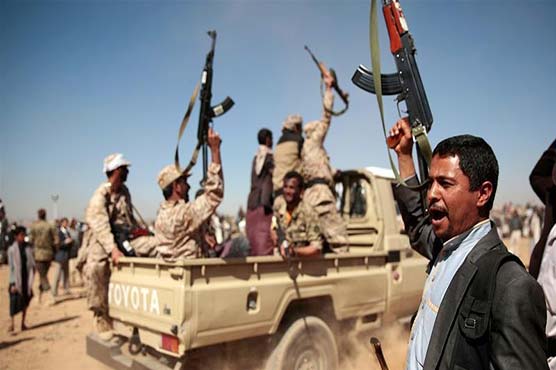UN says Yemen Houthis' redeployment in Hodeidah should respect Stockholm deal

Under the Stockholm agreement, both parties agreed on a ceasfire in Hodeidah
DUBAI (Reuters) - The United Nations welcomed on Sunday any redeployment of Yemen s Houthi forces away from the port city of Hodeidah, but said this should be independently verified to ensure it is in line with the Stockholm ceasefire agreement.
On Saturday, the Iranian-aligned movement said it had started to leave the port of the Red Sea city as part of a U.N.-sponsored ceasefire signed in Sweden this month with the Saudi-backed government.
The group said its fighters were withdrawing as specified in the agreement, handing control to local units of Yemeni coastguards who were in charge of protecting ports before the war. These will be under U.N. supervision.
But the Saudi-led military coalition, which intervened in Yemen in 2015 to restore President Abd-Rabu Mansour Hadi, dismissed the move as it fears that the coastguards may remain loyal to the Houthi-controlled Sanaa government after the withdrawal.
"Any redeployment would only be credible if all parties and the United Nations are able to observe and verify that it is in line with the Stockholm Agreement," the United Nations said in a statement.
The United Nations said on Friday both parties had agreed to begin opening humanitarian corridors, starting with the key coastal road between Hodeidah and the Houthi-held capital, Sanaa.
However, it said in Sunday s statement that the opening did not take place. Retired Dutch general Patrick Cammaert, the head of a U.N. advance team charged with monitoring the ceasefire, "expressed his disappointment" in a meeting with the Houthis at the port of Hodeidah on Saturday.
Houthi spokesmen could not be reached immediately for a comment.
The international community has been trying for months to avert an all-out government assault on Hodeidah, the entry point for most of Yemen’s commercial goods and aid supplies, and a lifeline for millions of Yemenis on the verge of starvation.
Under the Stockholm agreement, both parties agreed on a ceasfire in Hodeidah province and to withdraw their respective forces.
International monitors are to be deployed in Hodeidah and a Redeployment Coordination Committee (RCC) including both sides, chaired by Cammaert, will oversee implementation. The committee started its meetings this week.
Both parties are due to present detailed plans for a full redeployment to Cammaert at the next RCC meeting on Jan. 1, the United Nations said in a statement.

